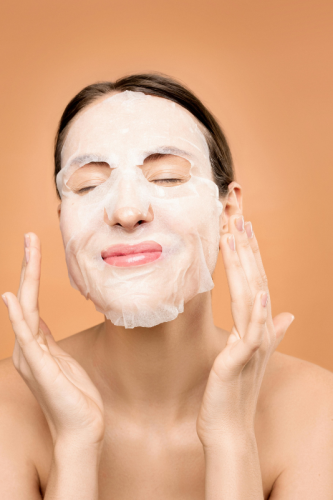Hydration and Nourishment: What Does Your Skin Really Need?
Maintaining healthy, glowing skin requires a thorough understanding of its needs, the most prominent of which are hydration and nutrition. Although some may think that both play the same role, they have different functions in skin care. In these notes, we will review the difference between hydration and nutrition, and when the skin needs each of them, based on recent studies and experiments. We will focus on providing content suitable for the intermediate level of study, while paying attention to making the article archivable and SEO-friendly.
The difference between moisturizing and nourishing
- Hydration: Refers to the process of providing water to the skin to maintain moisture levels. It relies on ingredients like hyaluronic acid and glycerin, which attract and retain water in the skin. According to a study from Difference between Hydration and Nutrition , water makes up about 70% of the skin, and is stored in the inner layer (dermis) and transported to the outer layer (epidermis) through channels called aquaporins. When the skin barrier is damaged, water can evaporate, leading to dryness.
- Nutrition: Focuses on providing the skin with essential nutrients such as vitamins (C, E), minerals, and fatty acids. These ingredients support cell repair, fight free radicals, and boost collagen production. According to Hydration or Nutrition: What's the Difference? , antioxidants such as vitamin E help protect the skin from environmental damage, while vitamin C promotes radiance and even skin tone.
When does the skin need moisturizing?
The skin needs moisturizing when signs of dryness appear, such as:
- Feeling tight or dry, especially after washing your face.
- The appearance of peeling or scaling, as mentioned in Signs of dehydrated skin .
- Increased appearance of fine lines due to water loss.
- Cold or dry weather, or the use of air conditioners, can increase the skin's need for moisture.
- After using harsh exfoliating products or treatments, your skin may need immediate hydration to restore balance.
- Choosing the right products is important, such as moisturizers that contain ceramides to strengthen the skin barrier, or hyaluronic acid to attract water ( Why Hydration Is an Essential Part of Your Skin Care Routine ).
When does the skin need nutrition?
The skin needs nutrition when signs of nutrient deficiency appear, such as:
- Dullness or loss of radiance, as noted in Nutrient Deficiency: A Hidden Cause of Skin Issues? .
- Premature appearance of wrinkles or loss of elasticity, indicating a need to boost collagen production.
- Changes in skin color, such as spots or pigmentation, which may be caused by a deficiency of vitamins such as C.
- After prolonged exposure to the sun, the skin needs antioxidants to repair damage.
- Nutrition can be supported by using vitamin E serum, creams containing argan oil, or even following a diet rich in vitamins such as eating oranges for vitamin C ( Skin findings associated with nutritional deficiencies ).
Additional studies and experiments
- A study from Cutaneous signs of nutritional disorders indicated that deficiencies in vitamins such as A and C can lead to dry patches or flaky skin, emphasizing the importance of nutrition.
- A study of moisturizing product users showed that using creams containing glycerin reduced dryness by 40% within two weeks, according to Hydrating vs. Moisturizing: How They Differ According to a Derm .
- As for nutrition, a study of 300 people showed that taking omega-3s improved skin elasticity and reduced inflammation, supporting skin health from within ( Nutrition for Nourished Skin ).
Comparison between hydration and nutrition
- Purpose :
- Moisturizing aims to provide water to maintain moisture in the skin, which helps prevent dryness and maintain its softness and elasticity. Nutrition aims to provide the skin with nutrients such as vitamins and natural oils, to support its health and repair its cells in the long term.
- Main ingredients :
- Moisturizing relies on ingredients like hyaluronic acid , which attracts water very efficiently, glycerin , which helps draw moisture from the atmosphere, and ceramides , which strengthen the skin’s barrier to prevent water loss. Nutrition, on the other hand, relies on ingredients like vitamin C , which boosts collagen production and protects the skin, vitamin E, an antioxidant, and argan oil, which is rich in fatty acids that renew cells.
- Common tags :
- The need for hydration is indicated by signs such as dryness , flaking , feeling of tightness , and fine lines resulting from lack of water. The need for nourishment is indicated by signs such as dullness , wrinkles , and changes in skin color such as spots or pigmentation, which indicate a lack of nutrients.
- Requirements :
- Skin needs hydration in situations such as cold weather that reduces humidity, or after harsh cleansing that removes natural oils. While it needs nourishment after sun exposure to repair the damage caused by it, or when signs of aging such as wrinkles and loss of elasticity appear.
In this way, we can see that moisturizing and nourishing serve different purposes but complement each other to maintain healthy and glowing skin. Understanding these differences helps in choosing the right products according to the skin’s needs at all times.
Practical tips for achieving balance:
- In the morning, use a Vitamin C serum to nourish, followed by a moisturizer with hyaluronic acid to lock in hydration.
- At night, choose a cream rich in vitamin E and natural oils to boost nourishment while you sleep.
- Don't forget to drink enough water daily, as it helps transport nutrients to skin cells and prevents dehydration ( Dehydrated Skin: Symptoms, causes, treatment, and more ).
- Exercising can stimulate blood circulation, which enhances the delivery of nutrients to the skin.
Conclusion
Ultimately, hydration and nourishment are two essential aspects of skin care, and both are essential to maintaining healthy, glowing skin. By understanding your skin’s needs and choosing the right products, you can achieve the perfect balance. Don’t hesitate to consult a dermatologist if you’re experiencing persistent issues, especially before trying new treatments.
Main References
- Difference between Hydration and Nutrition
- Hydration vs. Moisture: How to know what your skin needs
- Hydration or nutrition: What's the difference?
- The Importance of Nutrition and Hydration for Healthy Skin
- The Difference Between Skin Hydration and Moisture
- Hydrating and Moisturizing Aren't the Same for Your Skin — Here's Why
- Skin findings associated with nutritional deficiencies
- Cutaneous signs of nutritional disorders


